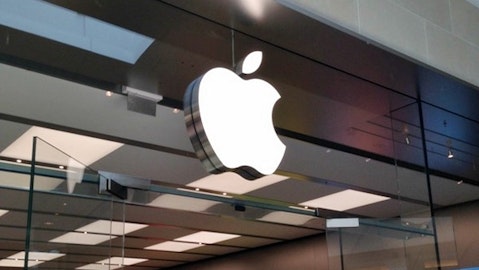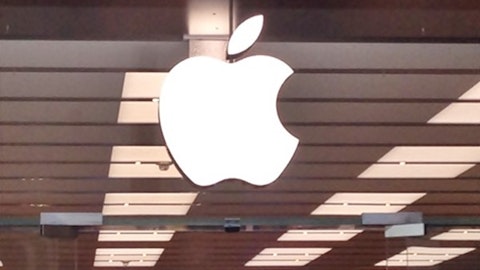The next time one of your colleagues fails to answer a question during a meeting, don’t think he or she is dumb. It might just be that they forgot to bring their Apple Inc. (NASDAQ:AAPL)-made smartphone to the conference room.
A study out of the University of Missouri titled “The Extended iSelf: The Impact of iPhone Separation on Cognition, Emotion, and Physiology” reveals that separation from one’s iPhone can lead to negative effects on extended self, cognition, emotion, and physiology.
iPhone Users Unwittingly Separated From Their Phones
The team led by Russell Clayton studied 40 participants screened for their smartphone choice from an original pool of 208 participants who were told that they would be in a study about “media usage among a sample of college students”.
The team said they did this because specifying ownership of a smartphone made by Apple Inc. (NASDAQ:AAPL) as a prerequisite to partaking in the study would have given away that the study had something to do about iPhones. They also said that they chose iPhone users because of “the ease with which the researchers could disable the silence mode on the participants’ iPhones.”
Told that they will be testing a new wireless blood pressure cuff, the participants were made to solve two word search puzzles. While solving the first puzzle, the heart rate and blood pressure of the participants who were still in possession of their iPhones were recorded. After solving the first puzzle, they were then asked their anxiety levels and how pleasant or unpleasant they felt.
While solving the second puzzle, the researchers took away the participants’ iPhones in the pretense of lessening “Bluetooth interference”. The researchers then called the participants’ iPhones while they were still solving the second puzzle. The same questions about anxiety and pleasant or unpleasant feelings were asked after the participants solved the second puzzle.
iPhone Separation Can Hurt Your Mind And Body
In an interview, Clayton said that adverse effects were seen in the participants both psychologically and physiologically when their iPhones were separated from them.
“Our findings suggest that iPhone separation can negatively impact performance on mental tasks. Additionally, the results from our study suggest that iPhones are capable of becoming an extension of our selves such that when separated, we experience a lessening of ‘self’ and a negative physiological state,” Clayton said.
Clayton, along with co-authors Glenn Leshner and Anthony Almond, found that heart rate, blood pressure and feelings of anxiety and unpleasantness increased when iPhone users were unable to answer their ringing iPhones while performing a mental task. iPhone users also found less words when in the word search puzzle when they did not have their iPhones.
Nonetheless, it is noteworthy to wonder whether anxiety generally spikes if people hear their phones ring. Anxiety when a phone rings could be explained by anticipation of urgent matters. Maybe Apple Inc. (NASDAQ:AAPL) just bought BlackBerry Ltd (NASDAQ:BBRY) – which has been posited before – and people like me have to write about it.
Worse, anxiety can be heightened by a ringing phone because people have a notion that a phone call can possibly be about bad news. It may be reaching, but it is possible. When people are anxious, doesn’t that affect concentration and mental ability?
However, the study still points to one interesting observation, at least for me: all our marvelously advance devices have made us more and more dependent on them.

By the end of the September quarter, Steve Cohen’s Point72 Asset Management owned 426,400 Apple Inc. (NASDAQ:AAPL) shares valued then at about $42.96 million, a 415% increase in the firm’s holding in the iPhone-maker compared to its stake in the company in the preceding quarter. Point72, which managed about $13.29 billion as of the third quarter of 2014, added Apple Inc. (NASDAQ:AAPL) to its portfolio during 2Q2014. Their current reported stake in the tech giant makes up 0.32% of their whole portfolio.




